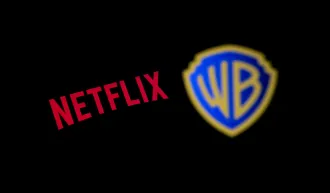September 01, 2007
| by Ben PimentelSuccessful leadership means taking risks, being fully engaged in the challenges of one’s organization, and being prepared to give up everything for one’s values and principles, four graduates of the Stanford Sloan Master’s Program told their peers.
“If you want to be a leader, the sunshine is always on you,” Bill Amelio, Sloan ‘89 and CEO of Lenovo Group Limited told Sloan fellows gathered for the program’s 50th anniversary September 13-15. “You have to have a game face all the time.”
The best leaders, he said, are able to inspire the rank-and-file by putting forth a clear vision and getting them motivated by learning how “to treat people like volunteers.”
“The idea is that nobody has to work for you,” he said. “They all have a choice. “It’s our assignment to be able to energize them and influence them so that they all want to be around us.”
Despite the conventional view that being able to do many things at once is an ideal trait for a leader, Amelio said he has found focusing on the task at hand to be critical to successful leadership.
“Full engagement is where it’s at,” he said. “You can’t do multiple things really, really well. You need to be fully engaged.”
He also said the most successful organizations are those with “a culture of forgiveness” in which leaders have the courage to admit mistakes.
“Saying ‘I’m wrong,’ — you can’t imagine how disarming that is. If you build a culture of forgiveness, it makes all the difference in the world.”
Scott Brady, Sloan ‘00, who is cofounder and former CEO of FiberTower Corporation in Menlo Park, stressed the importance of hiring the right people to make sure a company’s culture is preserved and nurtured.
“The most important part was to create the company DNA and to empower the team that allows them [the employees] to fulfill the vision that you set up,” he said. Sir Deryck Maughan, Sloan ‘78, managing director and Asia chairman of Kohlberg Kravis Roberts & Co., stressed the importance of looking beyond one’s organization.
“You better understand the environment in which you operate,” he said. “You have to get out of the bubble. No company, no group of people has a lock on information and insight. The more you get out there and engage the external world, the better that you and your company are likely to do.”
In a world of many uncertainties, he added, being clear on what one stands for is very important.
“You must know who you are,” he said. “You must know what you want. You must know what you want to do and what you’re not willing to do. You have to have a point of view.”
Frank Shrontz, Sloan ‘70, retired chairman and CEO of Boeing Corp., said having a focused vision of the future is important, adding that long, convoluted plans lead to confusion.
He also stressed the importance of inspiring loyalty in an organization, saying, “I am from an era where people started at a single company and stayed with it.” Still, he said he also did not believe in unbridled loyalty. Leaders, he said, must also appreciate employees “who stand up to you and take a different position.”
At a time when employees typically don’t stay long at a single company and are constantly looking for better jobs, Shrontz said leaders must focus on hiring people who appreciate “the importance of focusing on the job, not at the next opportunity.” He praised the Stanford Sloan Program, which he said gives executives the chance “to step aside from their own focus and try to broaden their perspective.”
“I congratulate Stanford for giving mid-career people an opportunity to take a useful sabbatical,” he said.
Founded in 1957, the Sloan Program is named for Alfred P. Sloan, philanthropist and the longtime chairman and CEO of General Motors. Sloan’s grant was used to launch the program that today attracts roughly 56 mid-career managers for a 10-month academic program leading to a Master’s of Science in Management degree. More than 700 Sloan alumni and family members attended the reunion September 13-15.
For media inquiries, visit the Newsroom.





